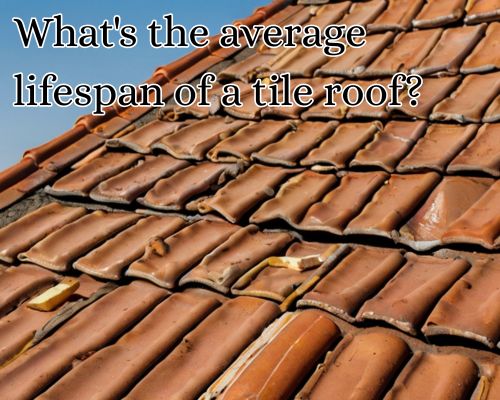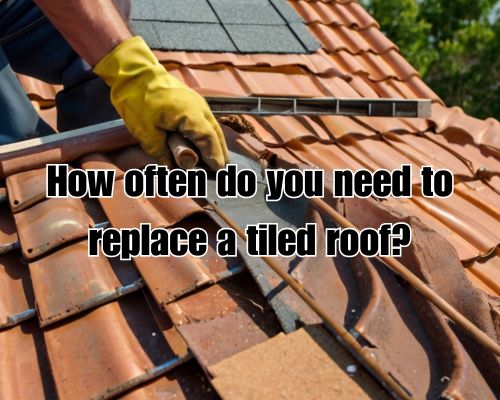Can You Replace a Tile Roof with Shingles? A West Palm Beach Homeowner’s Guide
Can You Replace a Tile Roof with Shingles? A West Palm Beach Homeowner’s Guide
When homeowners in West Palm Beach, Florida, begin exploring roofing upgrades, one common question arises: Can you replace a tile roof with shingles? This query is especially relevant in South Florida’s hot, humid climate where aesthetics, durability, and cost-efficiency all play vital roles in roofing decisions. The short answer is yes—but the real value lies in understanding how, when, and why this switch might be the best choice for your property.

With David Spade of Star Roofing, we’ll unpack the key considerations, benefits, and potential drawbacks of replacing a tile roof with shingles in Palm Beach County, helping you make an informed decision that balances performance, curb appeal, and cost.
✅ Why Would You Replace a Tile Roof with Shingles?
1. Cost Efficiency
Clay or concrete tiles—popular in West Palm Beach due to their Mediterranean appeal—are significantly more expensive than shingles in terms of both materials and labor. In contrast, asphalt shingles or architectural shingles offer a lower upfront investment while still delivering decent durability.
2. Weight Concerns
Tile roofing is heavy. Many older homes in West Palm Beach, especially near Historic Flamingo Park or El Cid, weren’t originally designed to bear such weight. Replacing tile with shingles can reduce stress on the structure, especially during tropical storms or hurricane season, when added weight can become a liability.
3. Easier Repairs and Maintenance
Shingles are easier and cheaper to maintain. Tile roofs, while durable, can crack under foot traffic or impact. Finding matching replacement tiles—especially for older roofs—can be a headache. Shingles provide a faster and more cost-effective solution when repairs are needed.
🛠️ Structural Considerations: It’s Not Just a Swap
You can’t just yank off your tile roof and slap down shingles without prep. Here’s what West Palm Beach roofing contractors like Star Roofing assess before making the switch:
1. Decking Evaluation
Beneath your tiles lies the roof deck—typically plywood or OSB. Shingles require a smooth, continuous decking surface, whereas tile roofs may have spaced sheathing. A re-decking job may be necessary.
2. Underlayment Requirements
Florida’s Building Code—especially in HVHZ (High-Velocity Hurricane Zones) like West Palm Beach—requires enhanced underlayment systems. This includes peel-and-stick membranes or synthetic underlayments for added wind uplift resistance and water protection.
3. Ventilation Adjustments
Tile roofs naturally allow more air movement. When switching to shingles, your roofer might need to improve attic ventilation with ridge vents or soffit intake systems to prevent heat buildup—a major concern in Palm Beach County’s scorching summers.
💸 Cost Breakdown: Tile vs. Shingles in West Palm Beach
Let’s get specific with numbers (approximate as of 2025):
| Roofing Type | Average Cost/Sq. Ft. | Total (2,000 sq. ft.) |
|---|---|---|
| Clay Tile Roof | $10 – $18 | $20,000 – $36,000 |
| Asphalt Shingle Roof | $4 – $7 | $8,000 – $14,000 |
Add to that:
- Decking Replacement: $2 – $4/sq. ft.
- Permit Fees (City of West Palm Beach): $150 – $400
- Hurricane Strapping or Reinforcement: Possible extra if your home was built pre-2001
Pro tip: Always ask for a detailed roof replacement estimate from a licensed roofer like those certified by the Florida Roofing and Sheet Metal Contractors Association (FRSA).
🌪️ Hurricane Readiness: Is a Shingle Roof Safe in Florida?
It’s a fair concern: Will a shingle roof withstand Florida’s infamous hurricanes?
Modern architectural shingles are built for Category 4 wind speeds—some rated for 130+ mph when installed with six nails per shingle and proper starter strips. Many brands now meet or exceed Miami-Dade County NOA (Notice of Acceptance) requirements, even though West Palm Beach isn’t technically under Miami-Dade jurisdiction.
Look for shingles labeled:
- Class A Fire Rating
- ASTM D3161 (Wind-Resistance)
- Class H or G wind resistance
🏠 Curb Appeal: Will It Look Worse?
One concern among upscale neighborhoods like South of Southern (SoSo) or Old Northwood is aesthetic downgrade. Tile roofs often exude luxury—can shingles match up?
Yes—with designer shingles.
Options like:
- GAF Timberline HDZ
- CertainTeed Landmark Pro
- Owens Corning Duration Series
These shingles come in dimensional styles and natural earth tones that mimic slate or wood shakes. While they don’t perfectly match the texture of tile, they offer a clean, architectural look suitable for HOAs or historic districts—just make sure to check City of West Palm Beach zoning ordinances or neighborhood design guidelines first.
🔍 Local Roofing Insight: What West Palm Beach Homeowners Say
Many homeowners in neighborhoods like Northwood Hills and Palm Beach Lakes have made the switch from tile to shingles, especially after suffering roof damage from hurricanes like Irma or Nicole.
Common themes from local contractor reports:
- Faster installation (1–3 days vs. 5–7 days for tile)
- Lower insurance premiums for new, code-compliant roofing systems
- Increased attic efficiency when paired with modern ventilation upgrades
🚫 What Are the Drawbacks?
Nothing’s perfect. Here are a few cons to weigh before replacing your tile roof with shingles:
- Shorter lifespan (Shingles last ~20–30 years vs. tile’s 40–50 years)
- Lower resale value in high-end markets like Palm Beach Island
- Potential HOA pushback depending on neighborhood standards
- Noise: Shingles offer less sound insulation than tile—expect to hear rain a bit more clearly
✅ Final Verdict: Should You Replace a Tile Roof with Shingles in West Palm Beach?
If your current tile roof is nearing end-of-life, cracking, leaking, or failing under hurricane conditions, and you’re looking for a more cost-effective, lower-maintenance solution, replacing it with shingles is a viable and often smart choice in West Palm Beach.
Just be sure to:
- Work with a licensed and insured local roofer
- Pull all necessary permits through the City of West Palm Beach
- Choose high-wind-rated shingles
- Consider aesthetic impact and neighborhood regulations
🛑 One Last Tip: Always Check Your Insurance Policy
If your roof was damaged in a storm, your homeowner’s insurance policy might help cover part of the cost to switch from tile to shingles. But be aware—some carriers will reimburse only like-for-like replacements. Contact your insurance adjuster before signing any roofing contracts.
📍 Local Search Bonus: Who to Call
Looking for reputable roofers in West Palm Beach who specialize in tile-to-shingle conversions?
Try these local names:
- Palm Beach Roof Co.
- Aastro Roofing
- All Phase Roofing & Construction
- Crown Roofing & Waterproofing
🔑 Key Takeaway
Yes—you can replace a tile roof with shingles in West Palm Beach, Florida. And if done with proper planning and materials, you’ll gain durability, savings, and peace of mind—all while meeting local building codes and aesthetic expectations.














